16. What are the complications associated with the sleeve weight loss surgery? There are some complications and side effects after sleeve weight loss surgery as well as other surgeries including blood clots, gallstones, operation site herniation, bleeding, leakage, stomach or intestine perforation, etc. If you plan your sleeve weight loss surgery by skilled surgeon, you will not experience any side effects and complications.
17. What is the success rate of sleeve weight loss surgery? General success rate of sleeve weight loss surgery is 95-98% in one year.
18. Will I have loose and saggy skin after gastric sleeve? Depending on the amount of your weight loss, you may experience loose and saggy skin in your belly and thighs. To avoid or treat this unwanted side effect, you should plan a regular exercise while you lose your weight. On the other hand, you could perform abdomaniplasty or Tummy Tuck to tighten your abdomen or belly skin after gastric sleeve surgery.
19. What is the mortality rate for gastric sleeve surgery? Gastric sleeve surgery is considered as a safe weight loss procedure when compared to other weight loss surgeries such as Baritric surgery or others. Severe complications are rare after gastric sleeve surgery. Mortality rate of sleeve weight loss surgery may vary from 0.1% to 0.15%.
20. Is it necessary to use food supplements after gastric sleeve surgery? Does taking food supplement increase my appetite? Patients who undergo sleeve weight loss surgery are advised to use food supplements such as multivitamins, minerals, calcium, vitamin D, vitamin B12, vitamin C, etc. Food supplements will not increase your appetite and just substitute your needed supplements to support your health.
21. When can I fly after gastric sleeve surgery? It is recommended to postpone your flying for 7 days after gastric sleeve for short flights and 10 to 14 days after gastric sleeve for long flights.
22. Can sleeve weight loss surgery cause cancer? All medical documents show a meaningful reduction in risk of cancers after sleeve weight loss surgery as well as Bariatric surgery.
23. When can I start to drink alcohol after gastric sleeve surgery? You should avoid drinking alcohol after Sleeve gastrectomy surgery for the first 6 months. Drinking alcohol may cause intoxication and low blood sugar.
24. Should I Consider Having Weight Loss Surgery? Weight loss surgery is not for everyone. Doctors generally recommend it only for people who:
- Have a body mass index (BMI) of 40 or more — about 100 pounds overweight for men and 80 for women
- Have a lower BMI (35 to 40), but also have serious health problems related to obesity such as heart disease,diabetes type 2,high cholestrol, or severe sleep apnea.
- Have tried and failed to lose weight by nonsurgical means such as diet and exercise.
Fully understand the risks associated with weight loss surgery and are motivated.
25. How Will My Physical Appearance Change After Weight Loss Surgery? As you start losing weight, you will likely be thrilled with your new appearance. However, many people who lose a lot of weight often find their skin looks loose and baggy. You may want plastic surgery to remove this excess skin.
26. Will My Social Life and Relationships Change After Weight Loss methods? Your relationships with friends and family may indeed change after weight loss surgery. For many people, food and drink are the basis for socializing. After weight loss surgery, you must find other ways to socialize — ways that aren’t focused on food. Also, as you lose weight, the results will be obvious. People will notice, and ask you about your appearance. Prepare for these questions ahead of time — and consider how you want to answer them.
27. Will I Feel Like Myself After I Lose Weight? Losing a significant amount of weight is no small matter. In fact, the effects are profound and far-reaching. Life may seem disconcerting at times. You may feel odd, not quite like yourself. You may feel overwhelmed by the lifestyle changes you must make for the rest of your life. You may have reached for food as comfort — and have difficulty giving it up. A therapist can help you get through this complicated period. A support group can also help. Ask your doctor about support groups for people who have had weight loss surgery. It helps to meet people who are making the same adjustments you’re making — and can help keep you on track with your weight loss program.
28. How Much Weight Will I Lose After Surgery? After gastric bypass surgery, most people can expect to lose between 66% and 80% of their extra body weight. Most of this is lost within the first two years. After gastric banding, people lose 40% to 50% of their extra weight, typically within the first two years after the surgery.
29. What Lifestyle Changes Are Necessary After Weight Loss procedures? Over time, some people regain weight despite bariatric surgery. Some eat high-calorie or high-fat foods instead of healthy foods — and eat them too often. Some people rely on “soft meals” such as ice cream and milk shakes. The body itself may change over time, too, leading to weight gain. The digestive tract might begin absorbing more calories. Even the size of your surgical stomach can expand gradually over time. To keep the weight off, you need to work at it. Here are some tips:
- Eat very small meals.Adapting to small meals is challenging but necessary. Eat small amounts of food slowly, chew well, and eat lots of protein.
- Make nutrition a priority.You must make the foods you eat count. Good nutrition is critically important. You must also take the right supplements, as recommended by your health care provider, because serious malnutrition occurs easily following weight loss surgery. A dietitian can create a diet and nutrition plan designed to meet your needs.
- Exercise regularly. Many obese people aren’t used to exercise, but it’s very important to prevent weight regain. The good news: Once you start losing weight, exercise will get easier.

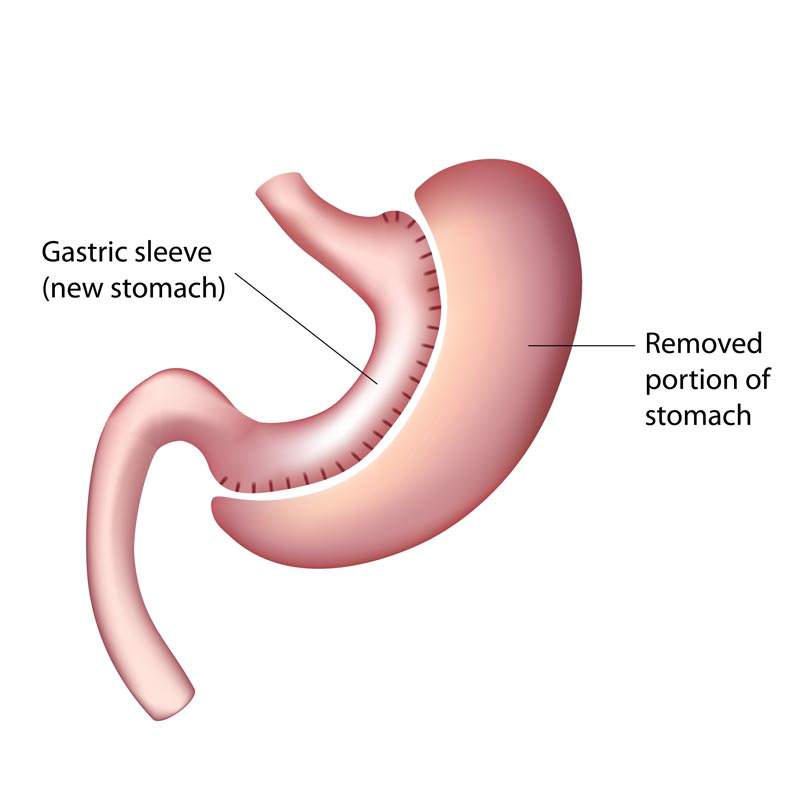

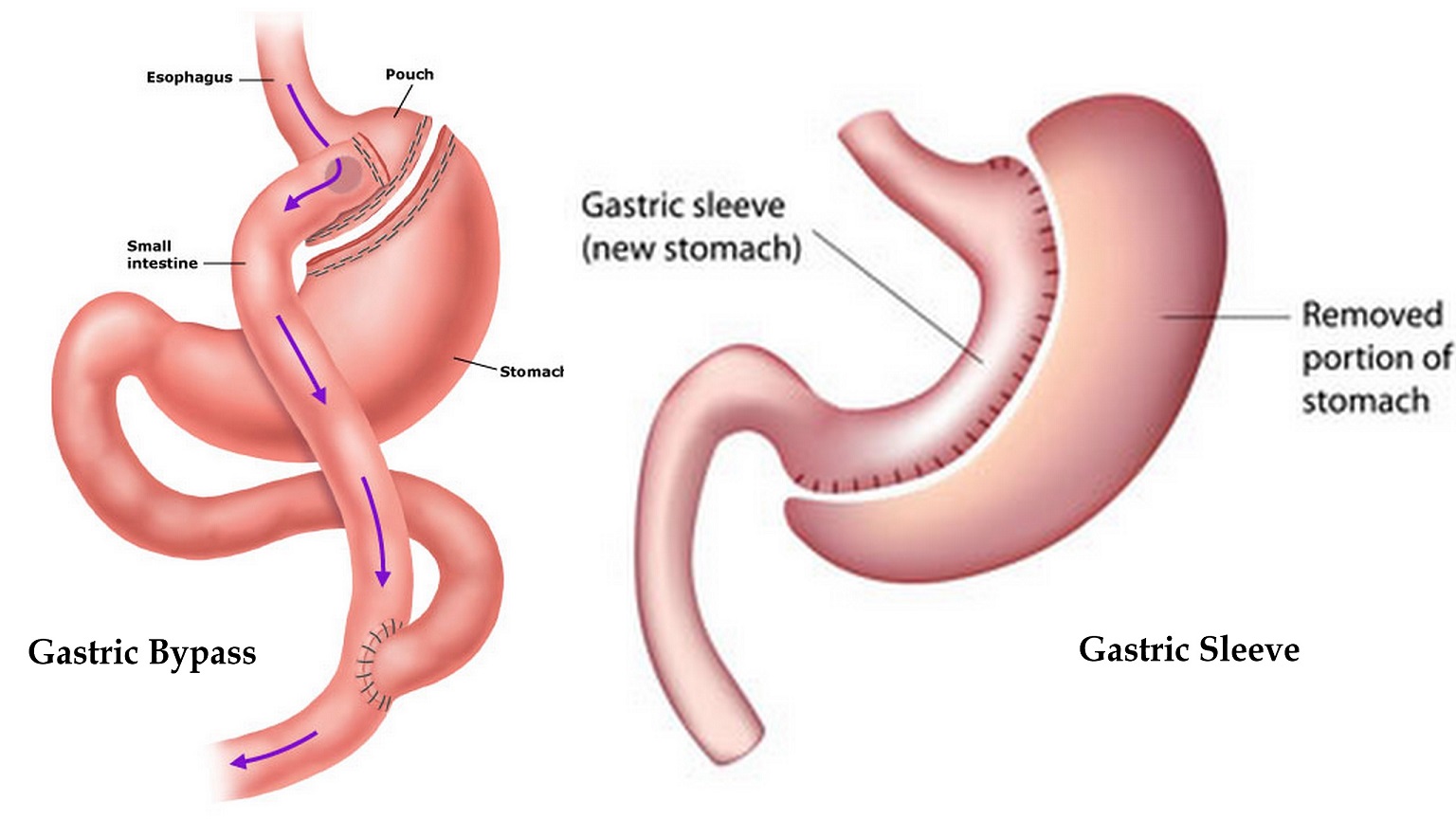
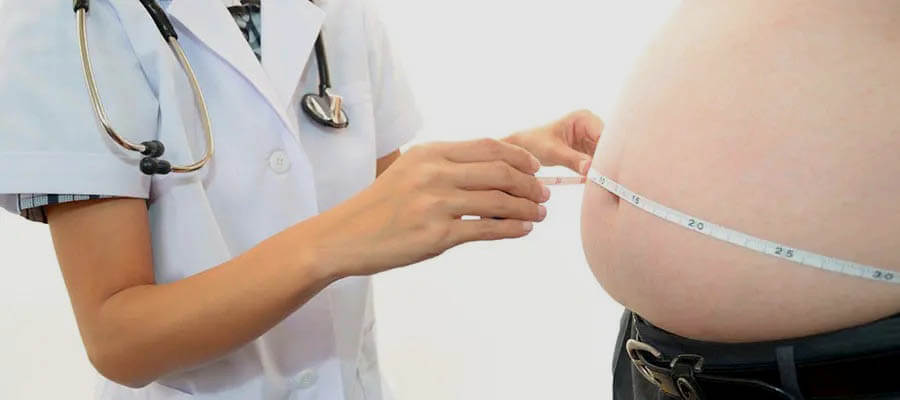


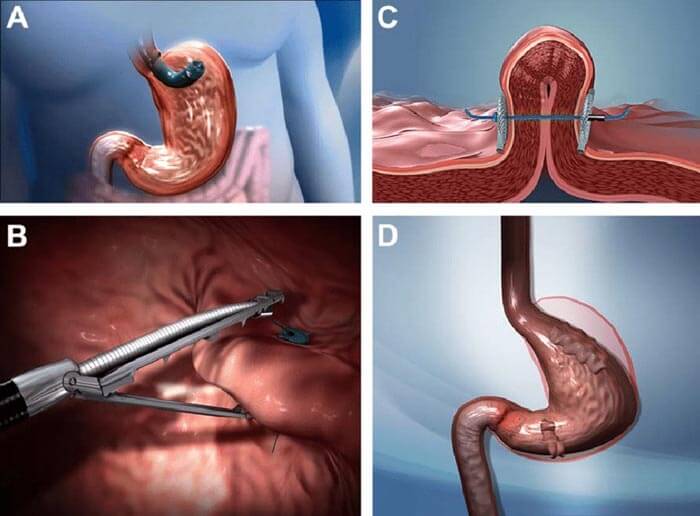

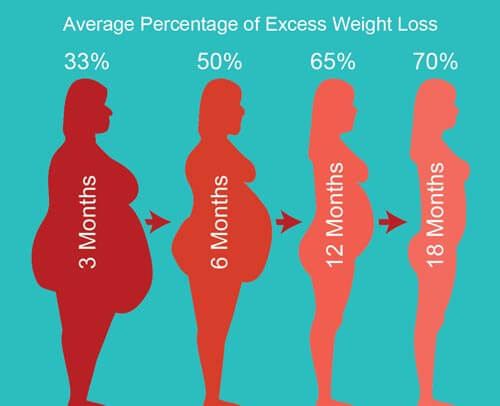







Comments & Questions